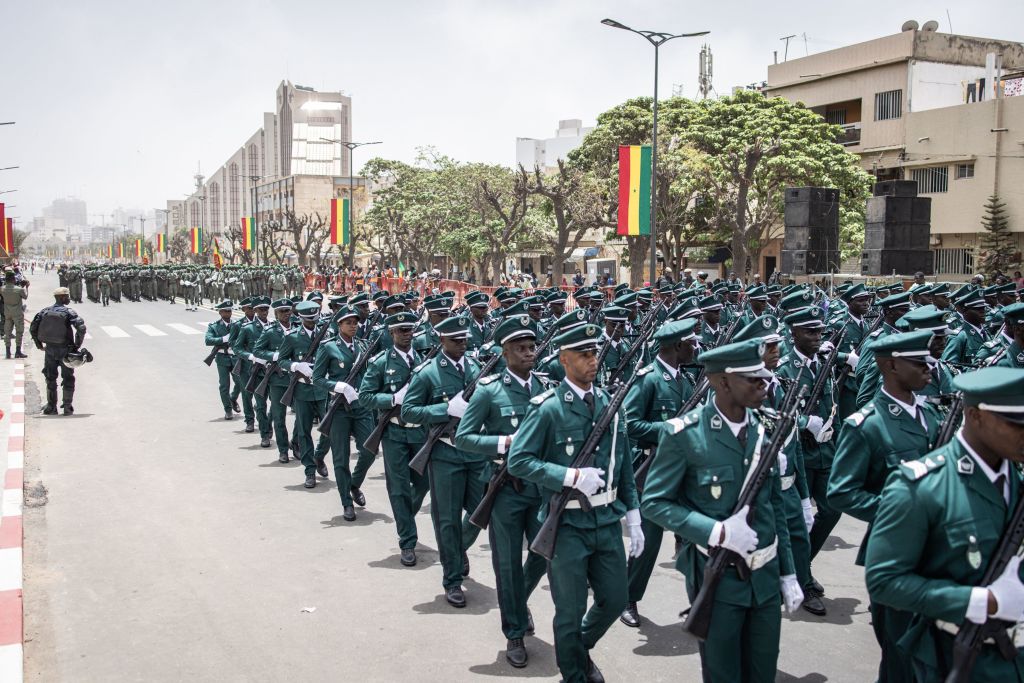ADF STAFF
That Senegal has never had a coup or a civil war is both a source of great pride among its people and a rarity in Africa.
The coastal West African country, surrounded by what recently has become known as a “coup belt” of countries that stretches across the continent, owes much of its stability to its military.
Having worked with senior officers in the Army, Senegalese activist Alioune Tine says his country’s armed forces have a strong reputation on the continent and internationally for being well-trained, disciplined and principled.
“There is a democratic culture, and there is also a strong commitment to defending this democratic culture,” the founder of the Dakar-based think tank Afrikajom Center told AfricaNews website. “At the same time, we have a well-trained army. It’s an army of intellectuals. It’s an army that, in my opinion, understands the boundaries and is aware of them.”
Senegal has made a dedicated effort to strengthen and sustain military professionalism. Year-round trainings focus on counterterrorism, counternarcotics, maritime security, military professionalization and peacekeeping.
As one of the largest per-capita troop contributors in Africa to United Nations missions, African Union missions and other regional security entities, the Senegalese military has proved itself to be among the most effective and reliable militaries on the continent.
Now-retired Gen. Talla Niang, deputy chief of staff of the Armed Forces of Senegal from 2000 to 2003, said the military’s clarity of mission and apolitical nature were created by design and have been reinforced through the years.
“The culture of professionalism in the Senegalese Army comes from its very origins,” he told the Africa Center for Strategic Studies (ACSS). “It was created from Soldiers who previously served in the French Army. “The first leaders created an extremely important concept, that of the armée-nation. It’s a concept that holds that the army’s role is to serve the nation, its development, and its security.”
Gen. Birame Diop, military advisor to the U.N. Department of Peace Operations and former chief of staff of the Senegalese military, underscored the importance of civilian oversight, especially in the context of the erosion of so many West African nations.
It’s necessary, he told ACSS, to have “a good mechanism for democratic control of the military by democratically elected authorities. For uniformed personnel to accept political leaders, they must believe that their leaders were elected in a transparent and political fashion.”
Senegalese military personnel consist of about 15,000 Army, 1,500 Navy, 1,500 Air Force, 9,500 national police and 11,000 gendarmerie, according to ACSS.
“The Senegalese Army benefits from the particularity that its troops mirror the country’s ethnic and regional composition,” Diop said. “There is a key or registry that shows this composition. So, if we say that this ethnic group represents 2% of the population, we will find those 2% in the Army. The Senegalese Army, therefore, is like a microcosm of Senegal itself.”
Senegal’s current Chief of the General Staff, Gen. Mbaye Cissé, has emphasized the importance of professional military education (PME) for teaching professionalism.
“Without PME, you will not have stability,” he said during a 2022 ACSS dialogue on military professionalism and PME academies. “An army that does not invest in education and ethics in relation to the population pays a price in terms of security.”
Cissé believes other militaries on the continent would do well to follow Senegal’s example.
“We have many PME academies in Africa, but we need to rethink the content they are teaching,” he said. “In this sense, PME institutes are not sufficient.
“We need African militaries to serve the public. We need African militaries to be autonomous, accountable and respectful of democratic values. If they are not, we will constantly be starting over and will not have stability.”

